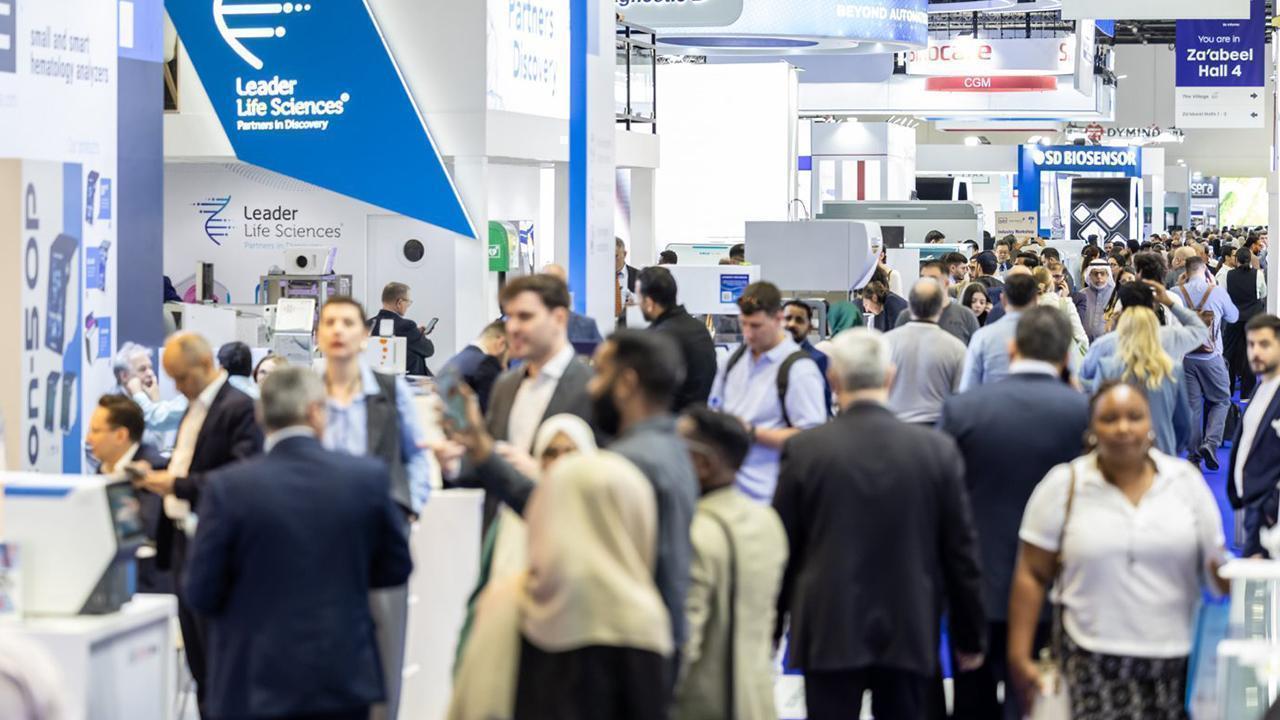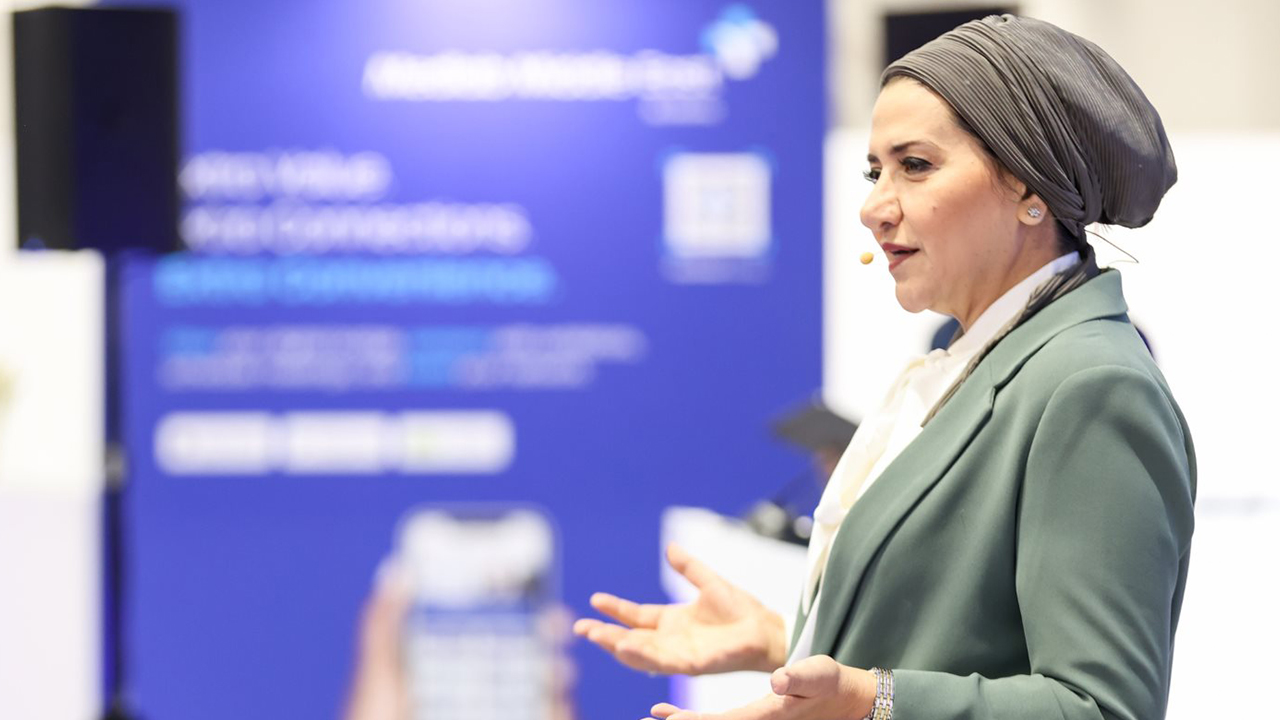
Post by : Raina Mansoor
Dubai, United Arab Emirates: As the healthcare industry intensifies its focus on environmental responsibility, the Lab Sustainability Conference took place today at Medlab Middle East, highlighting the crucial role of clinical laboratories in fostering a sustainable healthcare system.
With global temperatures rising and environmental challenges increasing, the impact on healthcare and laboratory professionals is expected to grow significantly. The conference explored how laboratories can adopt eco-friendly practices, optimize resource use, and balance ecological, social, and economic considerations while maintaining high-quality patient care.
A key discussion centered around the Doughnut Economy model and its relevance to laboratory sustainability. Created by economist Kate Raworth, this framework aims to achieve sustainable growth without exceeding ecological limits. Shaped like a doughnut, the inner ring represents essential needs such as food, healthcare, and education, while the outer ring symbolizes ecological factors like climate stability and biodiversity. The goal is to operate within this "safe zone," ensuring economic and social progress without overstepping ecological boundaries.
Dr. Rana Nabulsi, Chair of the Lab Quality and Safety Committee, DLMP, Dubai Health, opened the Lab Sustainability Conference, stating:“Medical laboratories and pathology departments worldwide consume five to ten times more energy and five times more water than standard office spaces. Additionally, these departments discard 5.5 million tonnes of plastic into the oceans, leading to significant public health impacts due to microplastics. The financial costs associated with energy consumption and waste output are also considerable. Today, our esteemed speakers will explore various aspects of climate change, its effects on public health, and solutions laboratories can implement to mitigate these risks.”
Following the opening address, Dr. Ali Al-Hemoud, a member of the Technical Advisory Group on Global Air Pollution for the World Health Organization (WHO) and a health research scientist at the Kuwait Institute for Scientific Research, led a compelling session titled “Immune-Mediated Diseases Associated with the Effects of Air Pollution.” The session focused on the exposome, which refers to the total collection of environmental exposures a person encounters throughout their life.
Dr. Al-Hemoud Said:“Climate change is causing environmental hazards such as thunderstorms, sand and dust storms, and air pollution. Our research examines how these hazards affect the exposome. These factors—particularly air pollution, greenhouse gases, pollen, and biodiversity loss—negatively impact human health over a lifetime. They can lead to immune degradation, increasing the risk of immune-mediated diseases, including allergic diseases, autoimmune disorders, and cancers.”
Elsewhere at the Medlab Middle East Congress, the Clinical Chemistry track explored the role of artificial intelligence, automation, and digital transformation in shaping value-based laboratory diagnostics. Meanwhile, the Molecular Diagnostics conference focused on cancer genomics and the genomics of rare diseases in the Middle East region.
During the Molecular Diagnostics conference, Dr. Mohamed Alameri, Head of Studies and Special Projects, Department of Health, Abu Dhabi, provided the latest updates on the Emirates Genome Programme, discussing its achievements, implications, and future directions.
The Medlab Middle East Congress, the world's only multi-disciplinary medical lab congress, concludes tomorrow with discussions on Lab Quality, Blood Transfusion and Cellular Therapy, and Immunology. Featuring 12 live, in-person tracks, the congress offers exceptional education and management solutions to help medical lab professionals advance their skills and improve services.
Medlab Middle East, the region’s largest medical laboratory exhibition and conference, continues to drive industry growth. The previous edition generated an estimated business value of USD 670 million (AED 2.46 billion), fueling the expansion of medical laboratories across the Middle East and beyond. The 24th edition of the event concluded on 6 February 2025 at the Dubai World Trade Centre.

Winter Skin Care: 10 Hydrating Drinks That Give Natural Glass Skin Glow
Learn how simple winter drinks keep your skin hydrated reduce dryness and support a natural glass sk

10 Songs That Carry the Same Grit and Realness as Banda Kaam Ka by Chaar Diwari
From underground hip hop to introspective rap here are ten songs that carry the same gritty realisti

PPG and JAFZA Launch Major Tree-Planting Drive for Sustainability
PPG teams up with JAFZA to plant 500 native trees, enhancing green spaces, biodiversity, and air qua

Dubai Welcomes Russia’s Largest Plastic Surgery Team
Russia’s largest plastic surgery team launches a new hub at Fayy Health, bringing world-class aesthe

The Art of Negotiation
Negotiation is more than deal making. It is a life skill that shapes business success leadership dec

Hong Kong Dragon Boat Challenge 2026 Makes Global Debut in Dubai
Dubai successfully hosted the world’s first Hong Kong dragon boat races of 2026, blending sport, cul

Ghanem Launches Regulated Fractional Property Ownership in KSA
Ghanem introduces regulated fractional real estate ownership in Saudi Arabia under REGA Sandbox, ena

Winter Skin Care: 10 Hydrating Drinks That Give Natural Glass Skin Glow
Learn how simple winter drinks keep your skin hydrated reduce dryness and support a natural glass sk

Why Drinking Soaked Chia Seeds Water With Lemon and Honey Before Breakfast Matters
Drinking soaked chia seeds water with lemon and honey before breakfast may support digestion hydrati

Morning Walk vs Evening Walk: Which Helps You Lose More Weight?
Morning or evening walk Learn how both help with weight loss and which walking time suits your body

What Really Happens When You Drink Lemon Turmeric Water Daily
Discover what happens to your body when you drink lemon turmeric water daily including digestion imm

DXB News Network Presents “Ctrl+Alt+Wim”, A Bold New Satirical Series Starring Global Entertainer Wim Hoste
DXB News Network premieres Ctrl+Alt+Wim, a bold new satirical micro‑series starring global entertain

High Heart Rate? 10 Common Causes and 10 Natural Ways to Lower It
Learn why heart rate rises and how to lower it naturally with simple habits healthy food calm routin

10 Simple Natural Remedies That Bring Out Your Skin’s Natural Glow
Discover simple natural remedies for glowing skin Easy daily habits clean care and healthy living ti

Mattel Revamps Masters of the Universe Action Figures for Upcoming Film
Mattel is set to revive Masters of the Universe action figures in sync with their new movie, ignitin